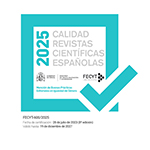Interpreting Confucianism in Chinese Philosophical Context with Qualia Structure
Resumo
Chinese philosophy understood through the key philosophical terms has been made familiar to Western readers by first “Christianizing” it, and then by “Orientalizing” it. Many of new translations of these canonical texts are uncritically perpetuating the same formula for rendering key philosophical terms proffered in the earlier efforts at cultural translation. Those who are working with the Master of Confucianism in China reconsider the Confucian values and attempt to interpret Confucianism in Chinese philosophical context. This paper employs the qualia structure (Pustejovsky 1991) to verify the validation of three important Confucian concepts, rén (仁), lǐ(礼) and dé (德), of the total 92 Confucian conceptual terms from The Analects (Lúnyǚ,《论语》) and Tao-Te Ching (Dàodéjīng,《道德经》) as the case studies. The qualia structure investigates the semantic information of the core characters in both source and target text which can effectively clarify the correspondence in Chinese-English translation in that the equivalent semantic information can be regarded as the equivalent translation. Furthermore, through this research, misunderstandings can be avoided and foreigners will find it easy to understand Chinese culture.
Downloads
##submission.format##
Licença
La revista Estudios de Traducción, para fomentar el intercambio global del conocimiento, facilita el acceso sin restricciones a sus contenidos desde el momento de su publicación en la presente edición electrónica, y por eso es una revista de acceso abierto. Los originales publicados en esta revista son propiedad de la Universidad Complutense de Madrid y es obligatorio citar su procedencia en cualquier reproducción total o parcial. Todos los contenidos se distribuyen bajo una licencia de uso y distribución Creative Commons Reconocimiento 4.0 (CC BY 4.0). Esta circunstancia ha de hacerse constar expresamente de esta forma cuando sea necesario. Puede consultar la versión informativa y el texto legal de la licencia.









